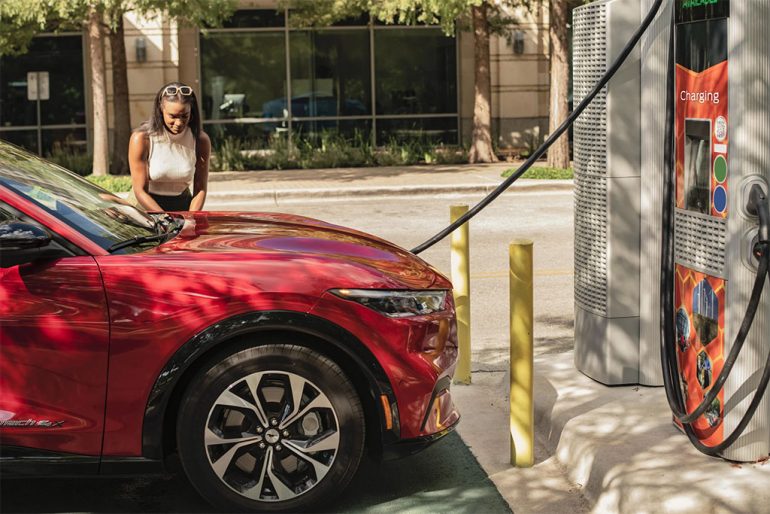
The recent adjustments to electric vehicle (EV) tax credit regulations in the United States mark a major shift that could expand the pool of eligible EVs for tax incentives. Under the finalized guidelines announced by the Treasury Department, automakers now have more flexibility regarding the sourcing of battery minerals, potentially broadening the range of EVs that qualify for tax credits of up to $7,500. These adjustments, introduced under the 2022 Inflation Reduction Act, aim to bolster demand for EVs, aligning with the Biden administration’s ambitious goal of achieving a 50% market share for electric vehicles by 2030.
The EV tax credits, ranging from $3,750 to $7,500 for new EV purchases and $4,000 for used ones, serve as incentives to stimulate consumer adoption and advance the transition towards cleaner transportation alternatives. Notably, the credits are now accessible at the point of purchase, streamlining the process for consumers. However, eligibility for these incentives hinges on various factors such as income, vehicle price, and compliance with evolving battery composition and mineral-sourcing requirements. To qualify, EVs must be manufactured in North America, with certain plug-in hybrids also meeting the criteria.
Also, don’t forget that you can get discounted new car pricing with a free quote through qualified local dealer partners.
The recent regulatory changes introduce phased-in rules aimed at promoting the development of a domestic EV supply chain. Notably, restrictions have been imposed on the use of battery materials sourced from nations deemed “of concern,” primarily China, Russia, North Korea, and Iran. These regulations mandate that a significant portion of the critical minerals used in EV batteries must be sourced or processed domestically or from countries with free trade agreements with the U.S. Moreover, starting in 2025, EVs containing any critical minerals from these nations will no longer be eligible for tax credits.
However, following input from the auto industry and stakeholders, the Treasury Department has decided to relax certain restrictions, particularly concerning trace amounts of minerals like graphite, until 2027. This adjustment aims to prevent the exclusion of otherwise eligible vehicles due to the challenges of tracing the origin of certain minerals. While these changes are anticipated to increase the number of EVs eligible for tax credits in the coming years, the auto industry emphasizes the complexity of establishing a robust domestic EV supply chain.
John Bozzella, CEO of the Alliance for Automotive Innovation, underscores the monumental task of transitioning the U.S. industrial base to support EV manufacturing. Despite the regulatory adjustments, challenges remain, particularly regarding China’s dominance in EV battery production. Currently, only a fraction of EV models sold in the U.S. qualify for the maximum tax credit, highlighting the need for further efforts to expand eligibility and enhance consumer incentives.
Despite the availability of tax credits, EV sales growth has been modest, indicating ongoing challenges in market penetration. The recent slowdown, led by prominent automakers like Tesla, underscores the need for a strategic approach to EV adoption. Treasury Secretary Janet Yellen emphasizes the broader benefits of EV tax credits, including cost savings for consumers, job creation, and energy security, underscoring the multifaceted impact of these incentives on the economy and the environment.
Source: Associated Press